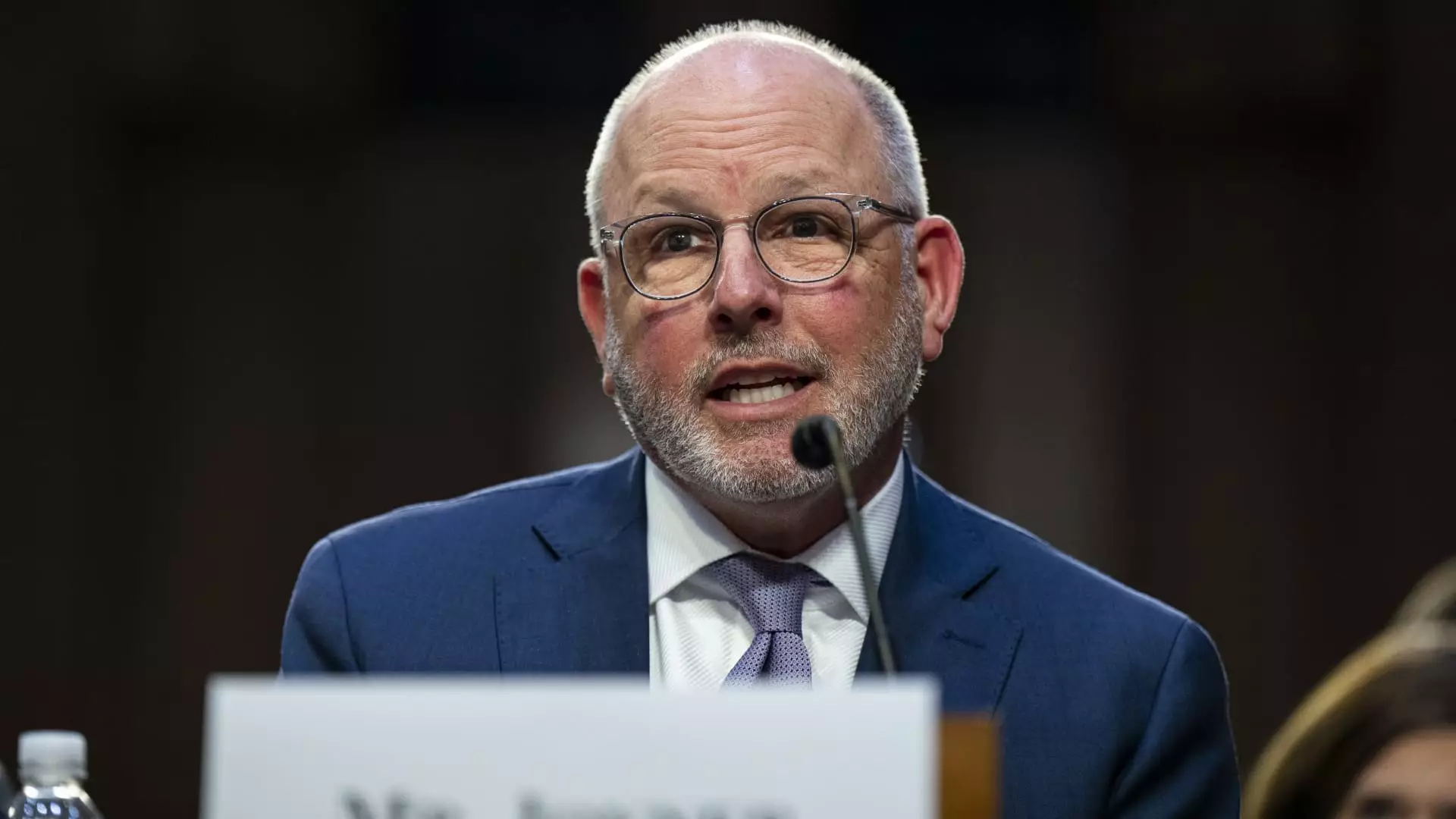In a significant shift that signals the evolving landscape of the healthcare and retail pharmacy sectors, CVS Health has appointed David Joyner as the new chief executive officer, taking over from Karen Lynch. This transition, which went into effect days before the official announcement, occurs in the backdrop of CVS’s considerable struggles with profitability and stock performance. Specifically, CVS’s shares have endured a nearly 20% decline this year, and the immediate market response to the leadership change saw shares plummeting another 11% in premarket trading. This turbulence has prompted serious reconsiderations of the company’s strategic direction.
CVS’s challenges are multifaceted, intricately tied to the undercurrents of escalating medical costs associated with its insurance arm, Aetna, alongside adversity faced in the retail pharmacy space. Consumer behavior has softened, which has adversely impacted prescription drug sales. Financial reports indicate that CVS is grappling with reimbursement issues that worsen its profitability outlook. Compounding these concerns, the company has revised its profit guidance downwards for three consecutive quarters, alongside announcing a cost-cutting initiative aiming to eliminate $2 billion in expenditures over the forthcoming years.
Despite these setbacks, CVS anticipates third-quarter adjusted earnings in the range of $1.05 to $1.10 per share, although it is bracing for higher medical costs than it previously estimated. This broader context of financial instability has understandably fueled shareholder impatience. Notably, Glenview Capital, a significant stakeholder, has called for transformative changes within the company, indicating that investor confidence is waning. The board’s consideration of a potential separation of CVS’s insurance and retail operations does represent an acknowledgment of the need for strategic reevaluation.
David Joyner’s return to CVS as CEO is noteworthy, bringing with him a wealth of experience from various key positions, particularly in overseeing the pharmacy services division as president of CVS Caremark. His leadership style is expected to draw heavily from the insights gained during his prior tenure and the more recent decade-long career trajectory. Joyner’s commitment to CVS is underscored by his return to the company after retiring in 2019, evidencing a personal investment in its success.
His previous engagements at Aetna, where he began his career, and his insights into the crucial pharmacy benefit management sector provide him with a robust foundation to navigate CVS through its ongoing operational hurdles. Joyner expressed a sincere commitment to leveraging his understanding of CVS’s integrated model to address challenges directly and expedite necessary operational enhancements.
As Joyner acclimates to his role, he will undoubtedly face a formidable array of challenges, including increased scrutiny from regulators and lawmakers concerning Caremark and similar entities. The Federal Trade Commission’s recent lawsuit against Caremark emphasizes concerns surrounding its profit-generating practices, particularly as they relate to rising insulin costs for patients. This regulatory climate is anticipated to remain contentious regardless of the political landscape following the upcoming elections. Joyner’s adept navigation of these pressures will be critical as he strives to stabilize and grow CVS through these turbulent times.
Furthermore, Joyner must address the ramifications of rising medical expenditures impacting Medicare Advantage patients—issues exacerbated by the return of seniors to hospitals for delayed procedures attributed to the COVID-19 pandemic. The company is striving for effective marginal improvements in its Medicare Advantage segment, aiming for a margin enhancement of 100 to 200 basis points in the upcoming year.
As CVS prepares to release its third-quarter earnings report, expectations are tempered. The projected medical benefit ratio for the insurance unit stands at about 95.2%, indicating increased medical expenses compared to premiums collected—an alarming sign that could signal constrained profitability. For CVS to regain investor confidence and reverse stock trends, Joyner will need to implement rigorous operational strategies and potentially reshape the company’s structure to better align with market demands.
David Joyner’s ascension to CEO marks a pivotal moment for CVS Health. His leadership will be scrutinized as he tackles the intricate challenges facing the company while seeking to exploit emerging opportunities in the healthcare landscape. As CVS navigates these complexities, the effectiveness of Joyner’s strategies in rejuvenating the company’s image and performance will be observed closely by stakeholders and competitors alike.

